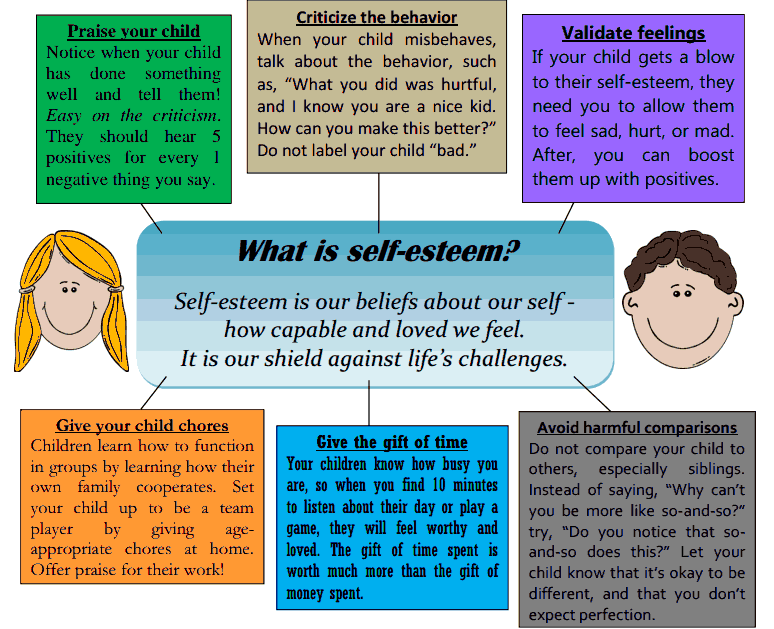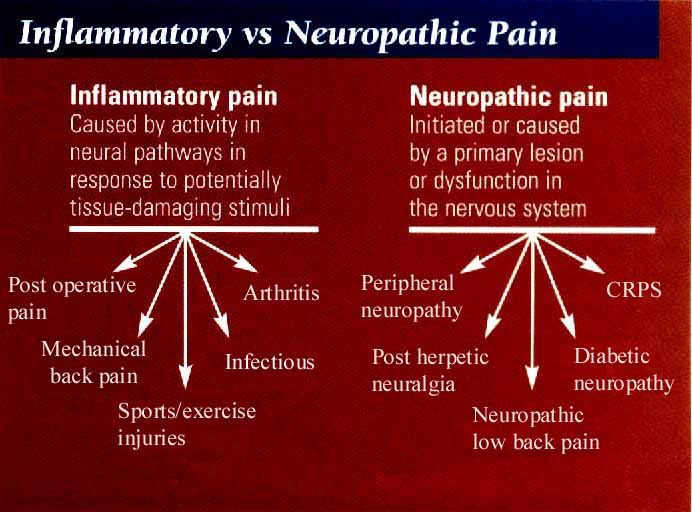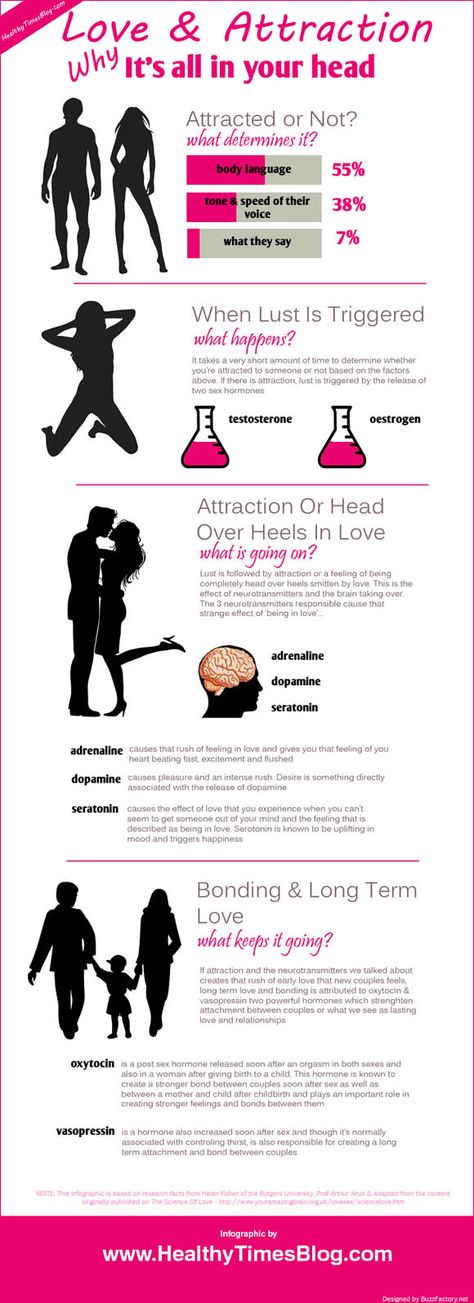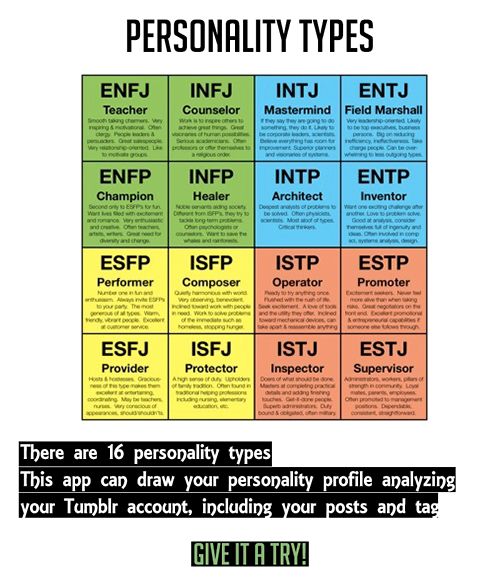When does empathy develop
When (and How) do Children Develop Empathy?
A 3-year-old who cries out, “Mommy! Look how big that man’s nose is!” will probably be politely shushed by his mother and ignored by the man. An adult who makes an equivalent statement, however, might find his own nose swollen and hurting within seconds. The difference is much more than a matter of social graces. We do not expect 3-year-olds to understand how the things they say affect other people’s emotions. They are not empathic in the way adults or even well-adjusted 6-year-olds are.
To empathize with someone is to understand what he is feeling or, more properly, to understand what you would feel like if you were in his situation. It is an extension of self-concept, but it is far more complex. It requires an awareness that others think of themselves in ways that are both similar to and different from the way you do, and that they also have emotions they associate with those thoughts and images.
Unlike intelligence and physical attractiveness, which depend largely on genetics, empathy is a skill that children learn. Its value is multifold. Children who are empathic tend to do better in school, in social situations, and in their adult careers. Children and teenagers who have the greatest amount of skill at empathy are viewed as leaders by their peers. The best teachers of that skill are the children’s parents.
The precursors of empathy can be seen in children within the first day or two of life. A crying newborn child in a hospital nursery will often trigger crying among other infants in the room. Such crying is not a true display of empathy. The newborn infant appears to be simply responding to a sound that makes her uncomfortable, much as she would to any loud noise.
Toddlers sometimes show behavior that is closer to true empathy in their first efforts to connect another person’s discomfort with their own. When a 2-year-old sees his mother crying, he may offer her a toy he’s been playing with or a cookie he’s been nibbling. He is giving his mother something that he knows has made him feel better when he has cried. It is unclear, however, whether the child understands what his mother is feeling, or is simply upset by the way she is acting, much in the way a puppy will come up and lick the face of someone who’s crying.
It is unclear, however, whether the child understands what his mother is feeling, or is simply upset by the way she is acting, much in the way a puppy will come up and lick the face of someone who’s crying.
By the time a child is about 4 years old, he begins to associate his emotions with the feelings of others. While one child says he has a stomachache, some 4-year-olds may come over and comfort him. Others, much to the bewilderment and horror of parents and teachers, will walk over the to child and punch him in the stomach.
Yet in each case the healthy child is demonstrating his empathy for the one who is ill. The aggressive child does not know what to do with the skill he’s been developing. The other child’s pain makes him feel uncomfortable. Instead of running away or rubbing his own stomach, as he might have done a year earlier, he feels frustrated and lashes out.
Teaching Empathy
Although the best training for empathy begins in infancy, it’s never too late to start.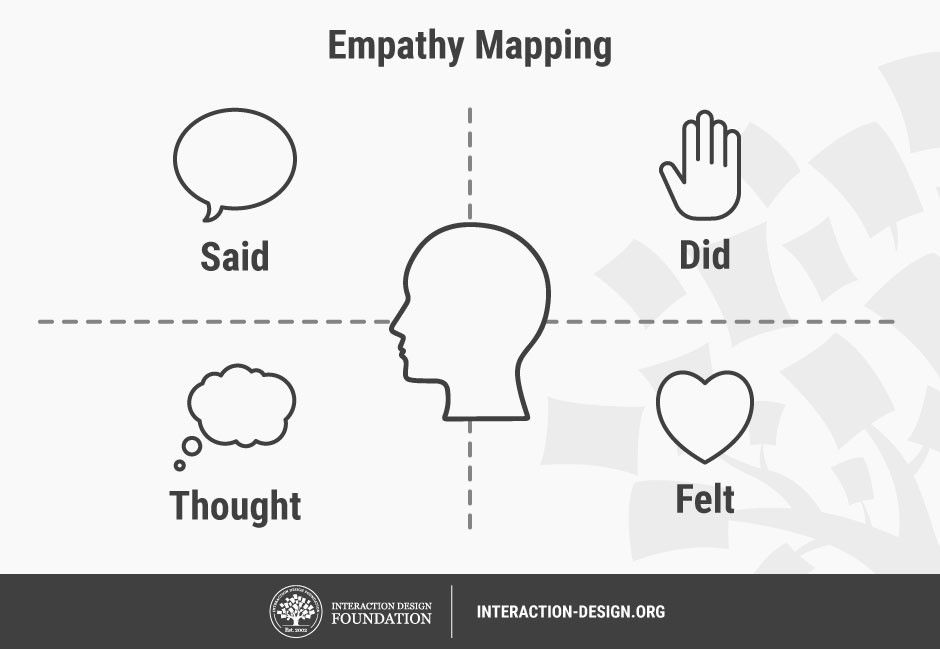 Infants and toddlers learn the most by how their parents treat them when they are cranky, frightened, or upset. By the time a child is in preschool, you can begin talking about how other people feel.
Infants and toddlers learn the most by how their parents treat them when they are cranky, frightened, or upset. By the time a child is in preschool, you can begin talking about how other people feel.
The way you show your own empathy, however, may be more important than anything you say. If your 3-year-old cries out, “Look at the fat lady!” and you publicly bawl out your child and say that he shouldn’t embarrass other people, you’re working against yourself. Instead, quietly and gently explain why saying that may make the woman feel bad. Ask him if he’s ever felt bad because of something a person said. Even so, some 3-year-olds may be too young to comprehend what you are saying.
When a child is about 5, he can learn about empathy by talking about hypothetical problems. How would you feel if someone took a toy away from you? How would your friend feel if someone took a toy away from him? By the time a child is 8, he can grapple with more complex moral decisions in which he must realize that someone else’s feelings may be different from his own.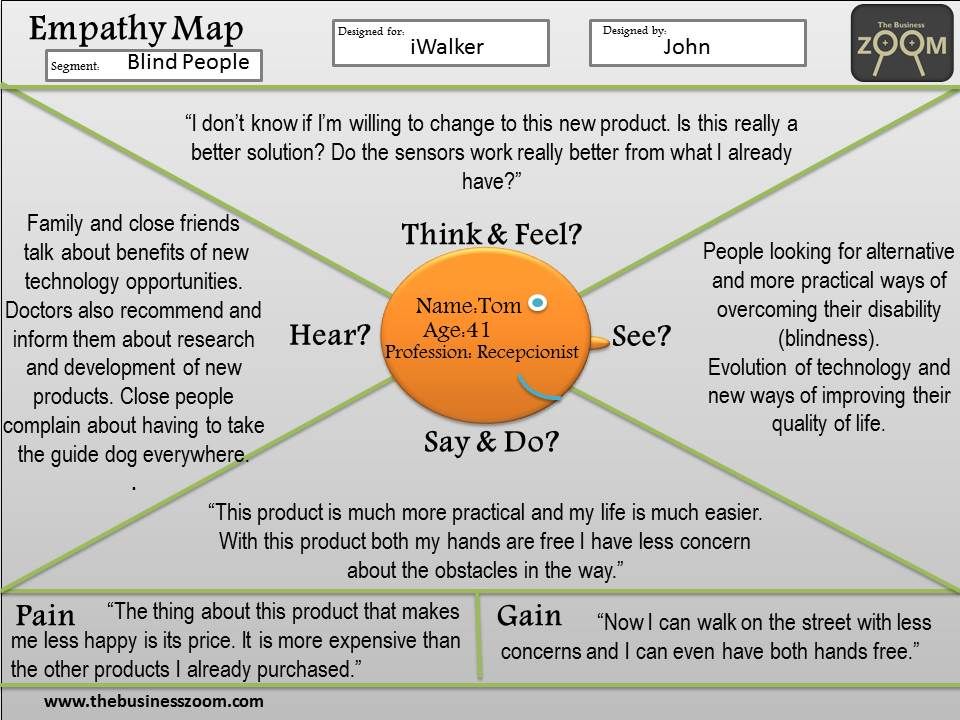
How Children Develop Empathy | Psychology Today
“My 3-year-old doesn’t seem very empathetic. Does this mean something is wrong?”
“Someone told me that kids can’t 'do' empathy until age 9. Is that true?”
These are examples of the types of questions parents often send us. There is good reason for confusion around the topic of empathy. While it is clear that empathy is important for the development of healthy social relationships and character traits like caring and kindness, it isn’t necessarily something that your child “has” or “doesn’t have” by a certain age. There isn’t a clear set of checkboxes you can mark or a definitive test you can take to make sure your child is on track to develop empathy.
Source: Canva
Indeed, observing a preschooler closely—especially with an eye out for more “grown-up” versions of empathetic responses—can be a bit disconcerting. Of course, there are times when empathy can show up in unmistakable ways.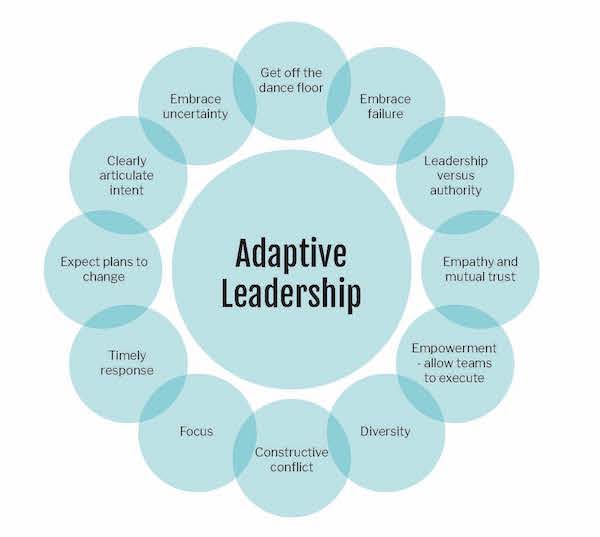 Just last week, I was touched when my son’s preschool teacher emailed me a picture of him offering a hug to a little girl in his class who was having a hard time. “There it is!” I thought proudly. “Empathy!” This warm glow cooled significantly just a few hours later when this same little angel watched his brother topple head over heels on the sidewalk. When we pointed out that the giant tears streaming down his brother’s face told us his baby brother was sad and scared, my older child responded by running in circles with his hands over his ears chanting, “That’s funny!” over and over again.
Just last week, I was touched when my son’s preschool teacher emailed me a picture of him offering a hug to a little girl in his class who was having a hard time. “There it is!” I thought proudly. “Empathy!” This warm glow cooled significantly just a few hours later when this same little angel watched his brother topple head over heels on the sidewalk. When we pointed out that the giant tears streaming down his brother’s face told us his baby brother was sad and scared, my older child responded by running in circles with his hands over his ears chanting, “That’s funny!” over and over again.
If, however, you can get past your own parental horror and look closer, it is clear that in both instances my older son had an emotional response to another person’s distress. The roots of empathy start there. Knowing how to handle those big feelings and translate them into behaviors that can truly serve another person is a far more complex task, one that requires both maturation and practice.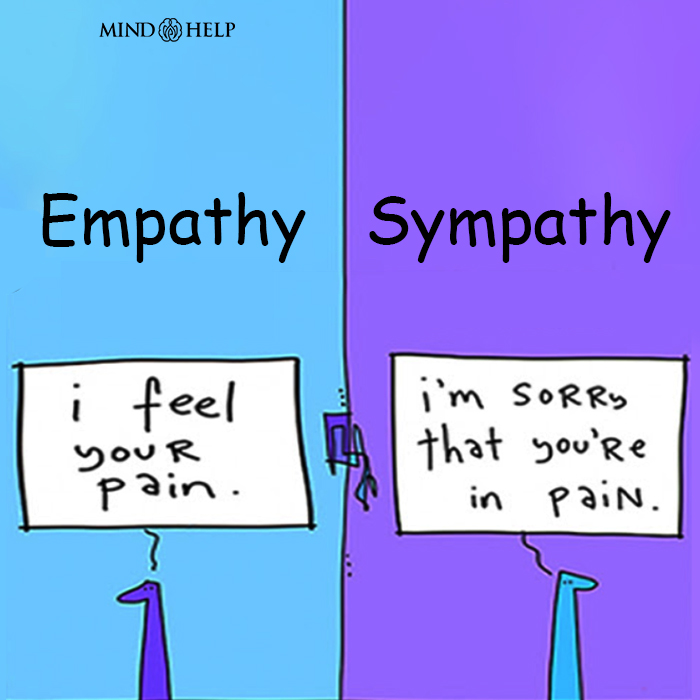
Empathy means that a child:
- Understands that she is a distinct person from those around her and that other people may have different feelings and perspective than her own.
- Can recognize feelings in herself and others and name them.
- Can regulate her own emotional responses.
- Can put herself in someone else’s shoes and imagine how someone might feel.
- Can imagine what kind of action or response might help a person feel better.
That’s a lot of work. Empathy is a work-in-progress throughout childhood and adolescence and is shaped by a range of factors including genetics, temperament, context, and environment. Empathy does not, however, simply unfold automatically in children. While we are born hardwired with the capacity for empathy, its development requires experience and practice.
Emotional Foundations
Empathy is both an emotional and cognitive experience. The emotional components of empathy are the first to emerge.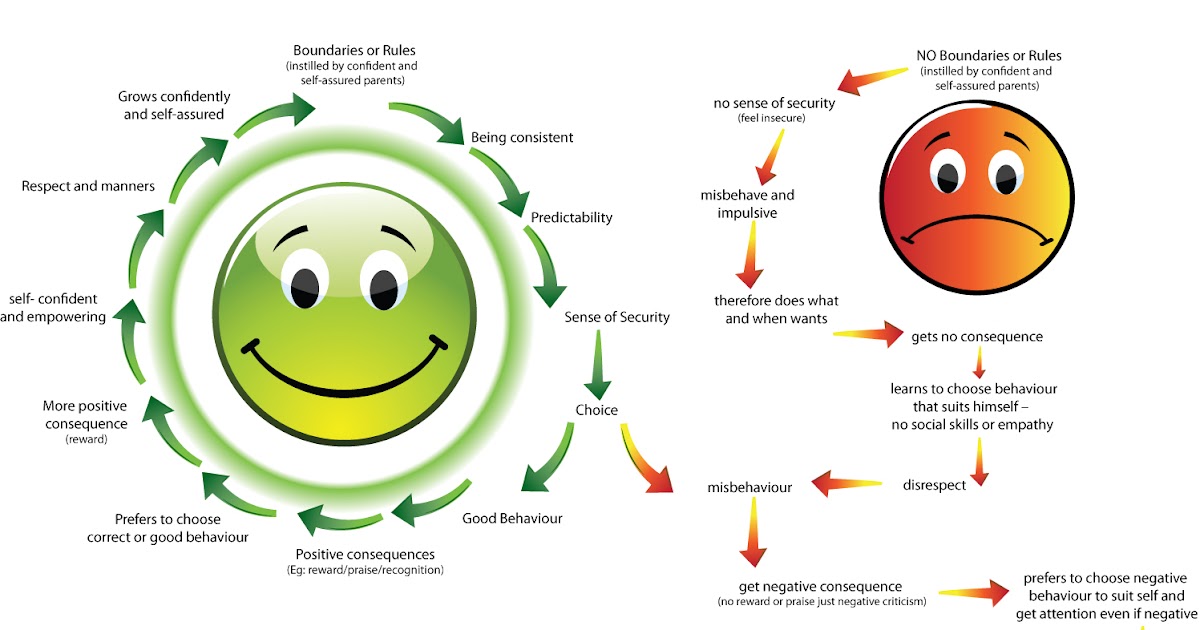 Babies begin reflecting the emotional states and expressions of those around them right away. Thanks to mirror neurons, infants as young as 18 hours old often show some responsiveness to other infants in distress. We don’t teach babies how to do this; they are born hardwired to map the experiences of others in their brains and bodies.
Babies begin reflecting the emotional states and expressions of those around them right away. Thanks to mirror neurons, infants as young as 18 hours old often show some responsiveness to other infants in distress. We don’t teach babies how to do this; they are born hardwired to map the experiences of others in their brains and bodies.
Early emotional experiences between babies and their caregivers are crucial to the development of empathy. As caregivers nurture and care for infants, babies make crucial associations between positive human interactions, reward systems, and feelings of calm and safety. Children who feel safe, secure, and loved are eventually more sensitive to others' emotional needs. Psychologists call this connection between caregivers and babies “attachment” and research shows that quality of attachment is a predictor of empathy and compassion later in life.
Feeling and Thinking
As children get older, the cognitive components of empathy begin to emerge and complement the emotional templates they formed during the first years of life. By the preschool years, children become more aware that other people have separate bodies, feelings, and experiences. They develop what is called a “theory of mind,” which enables them to engage in early “perspective taking,” a precursor to being able to stand in someone else’s shoes and care about what that feels like. The distinction between self and other matures quickly throughout early childhood. For example, if a one-year-old sees that a friend is upset he may go get his own mother to comfort him. A two-and-a-half-year-old in the same situation may get his friend’s mother because he now understands that his friend would want his own parent in a time of distress. Of course, these interactions are still in the very early stages of development and are limited to situations that toddlers have experienced themselves, guided by responses modeled by adults who care for them.
By the preschool years, children become more aware that other people have separate bodies, feelings, and experiences. They develop what is called a “theory of mind,” which enables them to engage in early “perspective taking,” a precursor to being able to stand in someone else’s shoes and care about what that feels like. The distinction between self and other matures quickly throughout early childhood. For example, if a one-year-old sees that a friend is upset he may go get his own mother to comfort him. A two-and-a-half-year-old in the same situation may get his friend’s mother because he now understands that his friend would want his own parent in a time of distress. Of course, these interactions are still in the very early stages of development and are limited to situations that toddlers have experienced themselves, guided by responses modeled by adults who care for them.
Cognitive components of empathy really come into their own by six or seven, when a child is more capable of taking another person's perspective and offering solutions or help when they notice someone in distress.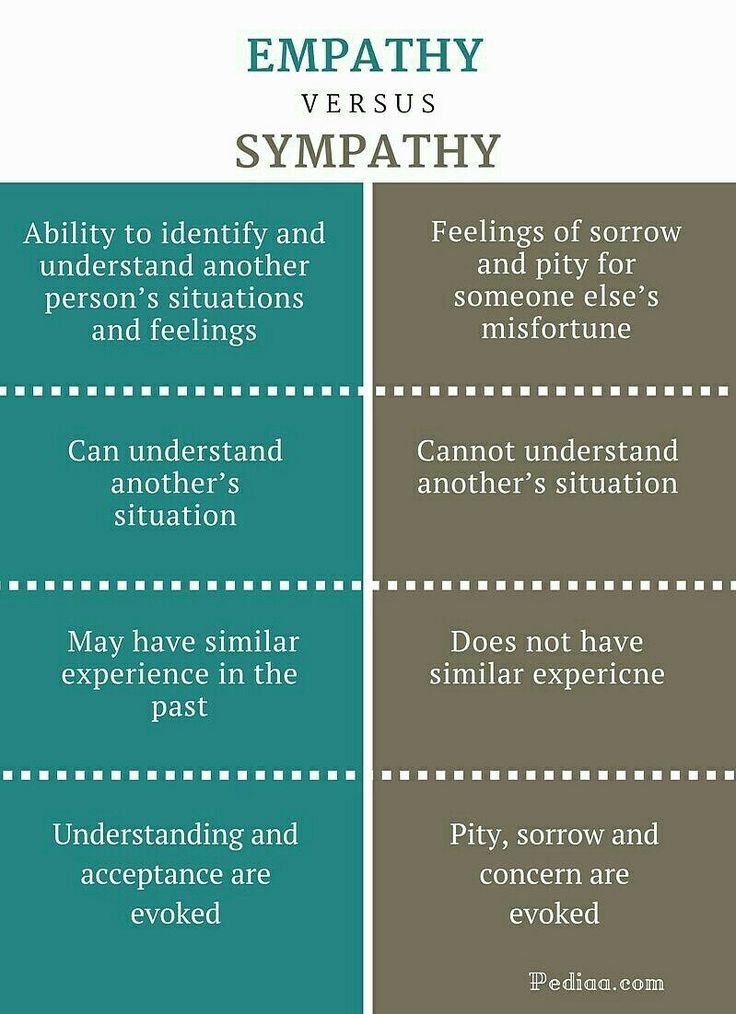 As children's executive function skills mature and they become more capable of managing their own distress, they gain the "cognitive space" they need to connect with another person's experience without feeling totally overwhelmed themselves. All of this practice is a foundation for the complex ethical and moral issues that young people begin to take on like bullying, inequality, or racism.
As children's executive function skills mature and they become more capable of managing their own distress, they gain the "cognitive space" they need to connect with another person's experience without feeling totally overwhelmed themselves. All of this practice is a foundation for the complex ethical and moral issues that young people begin to take on like bullying, inequality, or racism.
"Empathy is caught, not taught."
Of course, these skills and behaviors unfold differently for different children and depend upon context as well. A tentative preschooler who feels safe and secure halfway through the school year may be well poised to be an empathetic friend. The first day of school? Maybe not so much. But all of these moments are opportunities to create the conditions for empathy and plant seeds we hope will grow. We can’t sit our children down for formal lessons in empathy. Instead, empathetic responses emerge over time in the context of caring relationships, modeling, storytelling, communication, playing, emotion coaching, and a whole lot of patience.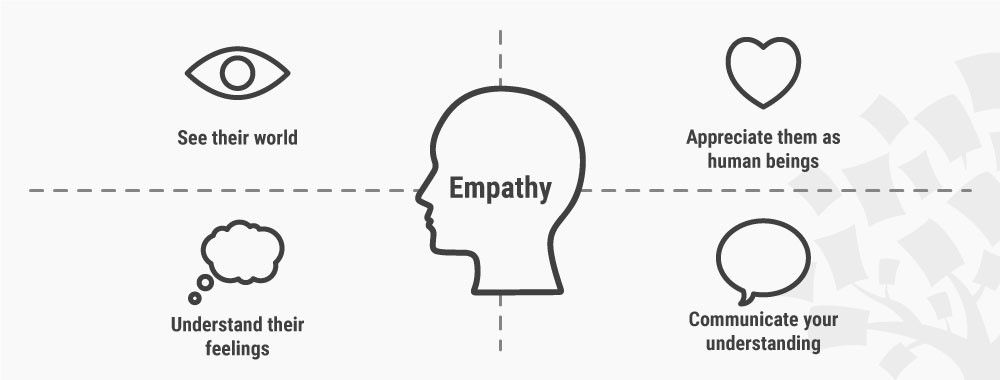 As Mary Gordon, the founder of Roots of Empathy, reminds us, “Empathy is caught, not taught.”
As Mary Gordon, the founder of Roots of Empathy, reminds us, “Empathy is caught, not taught.”
See our previous posts for tips on nurturing empathy throughout early childhood and into adolescence.
References
Mikulincer, M., Shaver, P. R., Gillath, O., & Nitzberg, R. A. (2005). Attachment, Caregiving, and Altruism: Boosting Attachment Security Increases Compassion and Helping. Journal of Personality and Social Psychology, 89(5), 817-839.
Astington JW, Dack LA. Theory of mind. In: Haith MM, Benson JB, eds. Encyclopedia of infant and early childhood development. Vol 3. San Diego, CA: Academic Press; 2008: 343-356.
Szalavitz, M., & Perry, B. D. (2010). Born for love: Why empathy is essential-- and endangered. New York: William Morrow.
Decety, Jean, and Kalina J. Michalska. "Neurodevelopmental changes in the circuits underlying empathy and sympathy from childhood to adulthood." Developmental science 13.6 (2010): 886-899.
Findlay, Leanne C.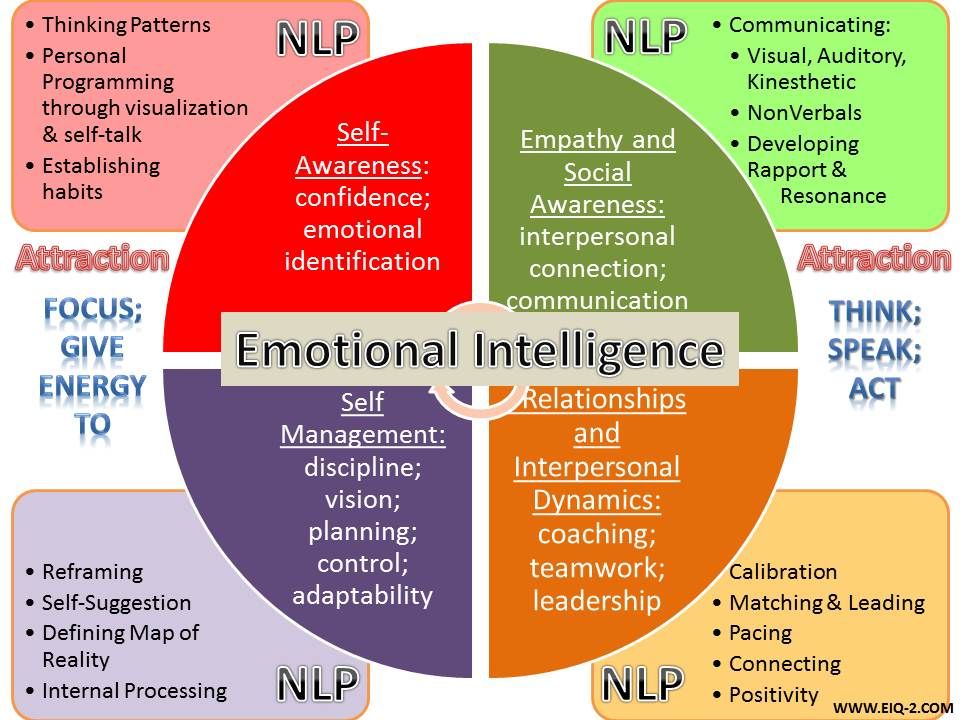 , Alberta Girardi, and Robert J. Coplan. "Links between empathy, social behavior, and social understanding in early childhood." Early Childhood Research Quarterly 21.3 (2006): 347-359.
, Alberta Girardi, and Robert J. Coplan. "Links between empathy, social behavior, and social understanding in early childhood." Early Childhood Research Quarterly 21.3 (2006): 347-359.
Cox, C. L., Uddin, L. Q., Di Martino, A., Castellanos, F. X., Milham, M. P., & Kelly, C. (2011). The balance between feeling and knowing: affective and cognitive empathy are reflected in the brain's intrinsic functional dynamics. Social cognitive and affective neuroscience, 7(6), 727–737. doi:10.1093/scan/nsr051
Proper development of empathy in children
The meaning of the word "empathy" is very broad. Some adults don't know how empathy works. They believe that this designation is only compassion or kindness. But it is also a conscious empathy for the state of another person.
Empaths are positive, good listeners, non-judgemental, and make friends easily.
Employees of educational institutions, kindergartens and schools do not have the task of instilling kindness and care for their neighbor in children. The development of empathy in a child is the responsibility of the parents.
The development of empathy in a child is the responsibility of the parents.
Every day we are in contact with a large number of people: they can be consultants in shops, minibus drivers, work colleagues, next of kin - we enter into communication with everyone, and our mood, and, consequently, our life depends on its quality .
People who know how to feel the internal state of the interlocutor easily tune in to his wave, adapt to the situation and behave correctly. If necessary and desired, an adult can learn the art of empathy, but in childhood this quality is easier to learn.
Why is it important to develop empathy in a child?
Psychologists say that empathy should be nurtured, because this quality affects the development of children. Empathy is the main life skill on which the development of intelligence, social adaptation and spiritual qualities are based.
Scientists studied the level of empathy in children and came to the conclusion that successful students with leadership qualities have a high level of empathy.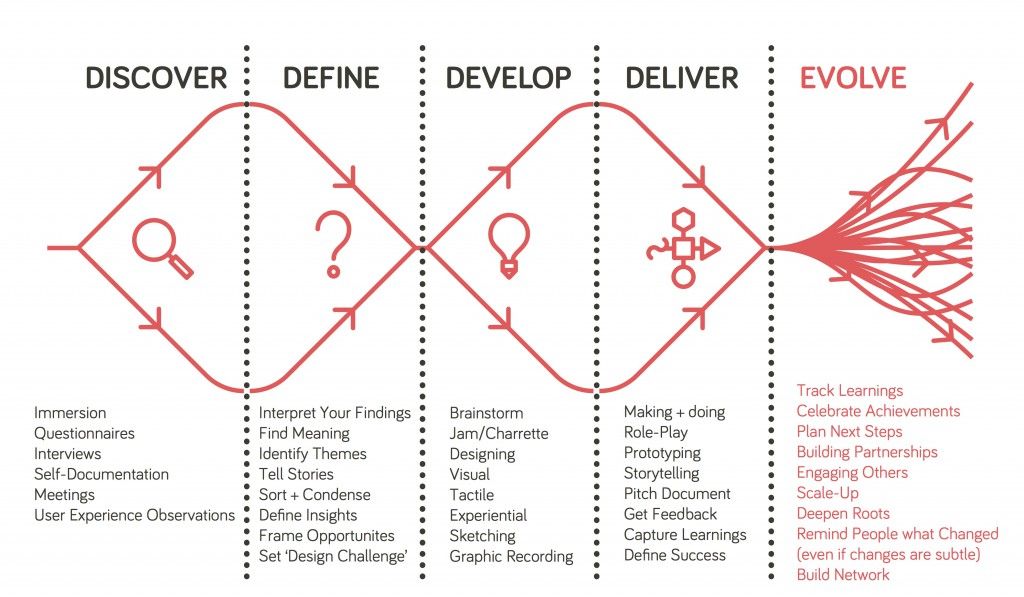
Distinctive features of empaths are attentiveness and understanding of the situation, the ability to avoid conflicts. It helps children to be successful at home and at school, achieve good academic results, communicate easily with peers, and build stable relationships in adulthood.
Parents should develop empathy in their child, because it provides many benefits:
- a positive attitude towards life;
- lack of inclination to condemn others;
- increased attentiveness to people and from people;
- ability to hear and listen;
- excellent communication skills;
- close contact with peers;
- formation of emotional intelligence;
- orientation towards adulthood.
The spiritual and intellectual nature of the child develops thanks to empathy, it contributes to the fact that the baby positively adapts to society.
Empathy is important to develop because every day we communicate with many people who influence our lives. These are all those with whom we are in direct contact: family members, colleagues, classmates at school, comrades in the sports section, the bus conductor and just acquaintances. The easier a preschool child will feel the mood and emotions of others, the easier it will be for him to live.
These are all those with whom we are in direct contact: family members, colleagues, classmates at school, comrades in the sports section, the bus conductor and just acquaintances. The easier a preschool child will feel the mood and emotions of others, the easier it will be for him to live.
Empathy at different ages
Features of empathy in each child at each age are different.
Young children (from birth to 4 years) begin to analyze their mood. They try to understand how they feel. Therefore, at an elementary level, he can understand and anticipate the emotions of others. The baby will cry loudly if he hears the cry of another. As experts say, he will "emotionally become infected." After the baby began to speak and master the world around him, it can be assumed that he had some kind of intuition for the feelings of others. He understands when parents are happy or upset.
Children of senior preschool age (4-7 years old) actively show empathy for the people around them. Even if the baby does not know how to properly console a friend who is ashamed, or how to properly respond to his happy event, he will still empathize with him.
Even if the baby does not know how to properly console a friend who is ashamed, or how to properly respond to his happy event, he will still empathize with him.
Children of primary school age (7-9 years old) can not only understand and appreciate the state of mind of a friend or parents, but also support, comfort with a word, help with advice. They are sympathetic to people who are dear to them.
The Japanese believe that children can be brought up only up to three years, and then only to correct their behavior. For them, 10 years is already early adolescence. Therefore, they are sure that until this time it is necessary to develop empathy in the baby, otherwise he will grow up as an egoist.
Building empathy in children
Parents are wondering how to develop empathy in a child. Empathy in children develops through play and reading fairy tales. Ask the child what the wolf felt when he sat at the hole and caught a fish with his tail, what did the fox think? What qualities of character distinguish Dr. Aibolit and his sister? Share your emotions with your child, tell how happy you are in anticipation of the upcoming vacation or why you feel sad on a rainy day.
Aibolit and his sister? Share your emotions with your child, tell how happy you are in anticipation of the upcoming vacation or why you feel sad on a rainy day.
Get in the habit of dealing with all situations, especially conflicts, at the level of emotions: “You had a fight with Petya, tell me how you felt about it? Resentment, hatred, resentment? How do you think Petya felt? While walking, guess the mood of people passing by by gait and facial expression. Connect your imagination and you will see how exciting this activity is.
According to psychologists, the development of emotional intelligence is impossible without empathy. With the help of emotional intelligence, we understand and can explain our own emotions and experiences, as well as understand the feelings of others.
Highly developed emotional intelligence allows us to better understand ourselves and others, to be reliable friends, good listeners and mentors.
Developing empathy with animals
Pets help develop empathy in children. Pay attention to how the baby communicates with the pet. If this is aggressive behavior, explain that you can’t do this, encourage affectionate communication.
Pay attention to how the baby communicates with the pet. If this is aggressive behavior, explain that you can’t do this, encourage affectionate communication.
Children treat pets like family members and take care of them. Children develop a sense of responsibility and attention to their neighbor, in a word, high emotional intelligence. The empathy of preschoolers is most clearly manifested through the care of a pet.
If the child is cruel to animals, offer him a game. Let him imagine himself as some kind of animal and try to feel what would happen to him if he were mistreated. For example: “Pasha, imagine that you are a cat. You have a beautiful and fluffy tail that you really like. And then a worthless boy comes up and pulls you by the tail. What do you feel? You must be in pain? Unpleasant? Do you want the boy to let you go?"
Psychologists say that empathy is a very necessary quality. If you develop it from an early age, then in the future it can develop into a superpower - reading emotional information, which allows you to move to a completely different level of communication.
What is empathy and how to develop it
Employers increasingly list soft skills among the necessary characteristics of employees: these are the qualities that help to “fit in” with the team and solve work issues without conflicts. One of the important components of soft skills is the ability to understand the feelings of others - empathy.
Anastasia Batkhina ,
psychologist, founder of InMind
Advertising on RBC www.adv.rbc.ru
What is empathy - in simple terms
Empathy is the conscious empathy with the emotional state of others, the ability to recognize how they feel and express compassion. It is carried out, among other things, with the help of mirror neurons, which are located in the cerebral cortex and allow you to reflect the feelings and emotions of other living beings.
The ability to sympathize helps us feel ownership of what is happening to a person, and the person himself will understand: his emotions are important to you, you accept him.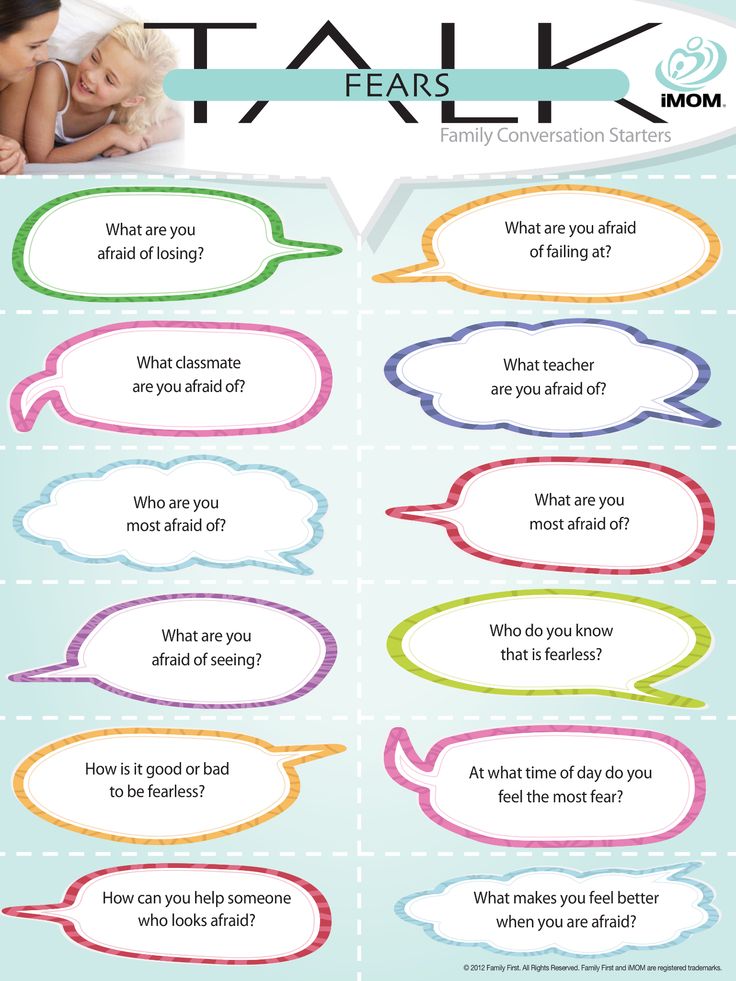
This skill is essential in building interpersonal relationships: finding a common language, negotiating and developing a strategy that will satisfy both parties is possible only when we are able to put ourselves in the place of another.
Empathy is the bridge between the worlds in which each of us lives: it helps to feel unity with others.
To build a bridge, a number of rules must be followed.
Rules of Empathy
1. Sincere desire to understand and sympathize with any person
Empathy is a complex inner work that requires a lot of resources. But often it is easier for us to judge others, using stereotypes and labels, to dismiss their feelings, motivating this by unwillingness to delve into other people's problems.
Advice: we should sincerely care about what happens to a person - this is the only way to create deep constructive relationships.
2. Empathize, not evaluate
If another person gets into an unpleasant situation, there is usually a desire to say: “You did something stupid and you are to blame for everything.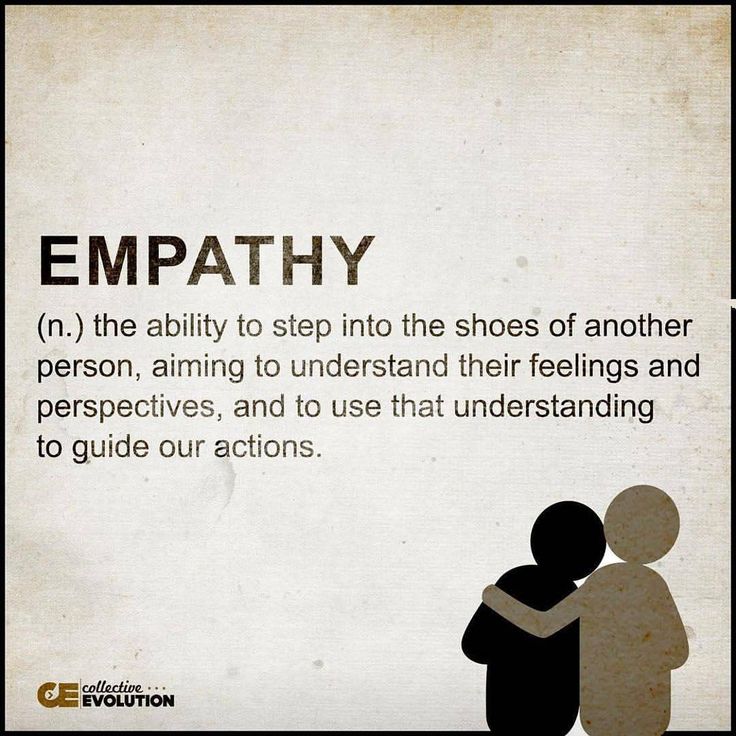 ” But in this way we give an assessment of what is happening, label and try to devalue the feelings of another: they say, it’s okay what you are going through, it’s all nonsense. This is how the defense mechanism of the psyche turns on: we do not want to face strong negative emotions of other people. However, it is important to understand that such an attitude will not allow you to express sympathy, provide assistance, establish contact.
” But in this way we give an assessment of what is happening, label and try to devalue the feelings of another: they say, it’s okay what you are going through, it’s all nonsense. This is how the defense mechanism of the psyche turns on: we do not want to face strong negative emotions of other people. However, it is important to understand that such an attitude will not allow you to express sympathy, provide assistance, establish contact.
Advice: refuse automatic reactions and take a nonjudgmental position.
A frame from the film “It's good to be quiet”
© kinopoisk.ru
3. Accept the fact that each person lives in his own psychological reality
Remember: each of us has our own views, ideas, beliefs, rules.
Tip: be respectful of these differences. Even if we do not share a person's worldview, we must admit that he has the right to his point of view.
Exercises for developing empathy
People have different ability to experience empathy: some people have it from birth, while others find it difficult to imagine themselves in a strange place.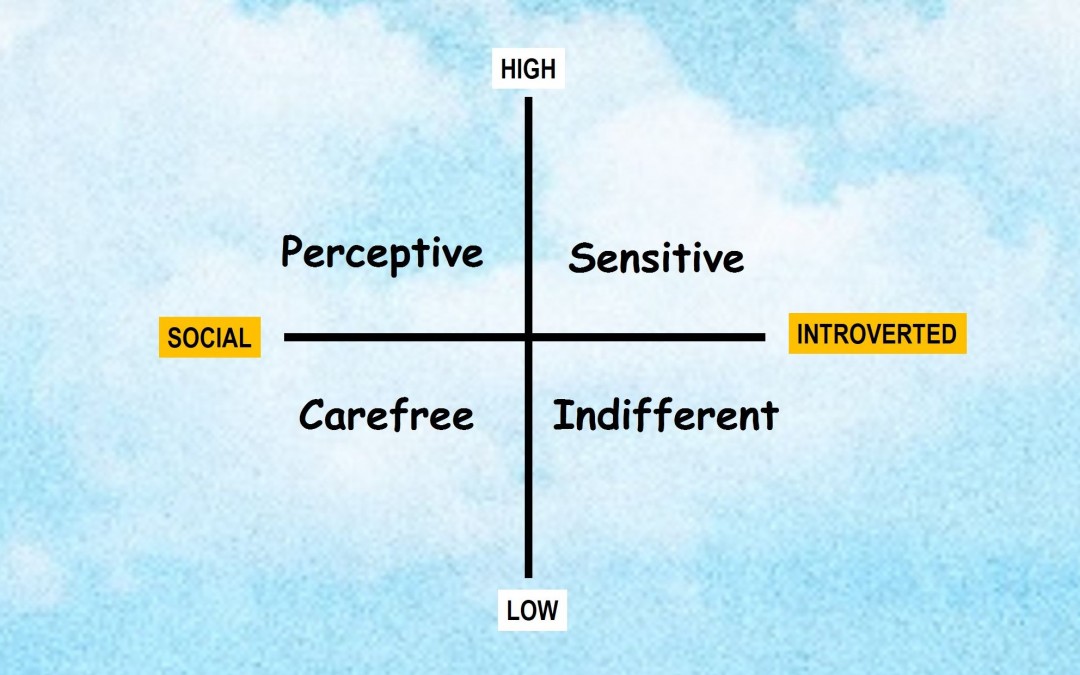 But the situation can be changed, because empathy is a skill that develops: it requires desire and regular training. 1. People around us at the moment, whether they had a good day today or a difficult one. And while communicating, ask yourself the question: “How does the person with whom I am talking feel now?”
But the situation can be changed, because empathy is a skill that develops: it requires desire and regular training. 1. People around us at the moment, whether they had a good day today or a difficult one. And while communicating, ask yourself the question: “How does the person with whom I am talking feel now?”
Result: thus at first you only build hypotheses, but with the development of the skill you will be more accurate in your estimates.
2. Active listening
The basis of empathy is the ability to listen to a person. Set yourself a task: to hear and understand what he wants to convey. When communicating with others, try not to be distracted by extraneous matters: put down the phone, maintain eye contact, do not interrupt, let them speak.
Result: this will allow you to better establish contacts with other people, because each of us especially appreciates those interlocutors who possess the art of not only a storyteller, but also a listener.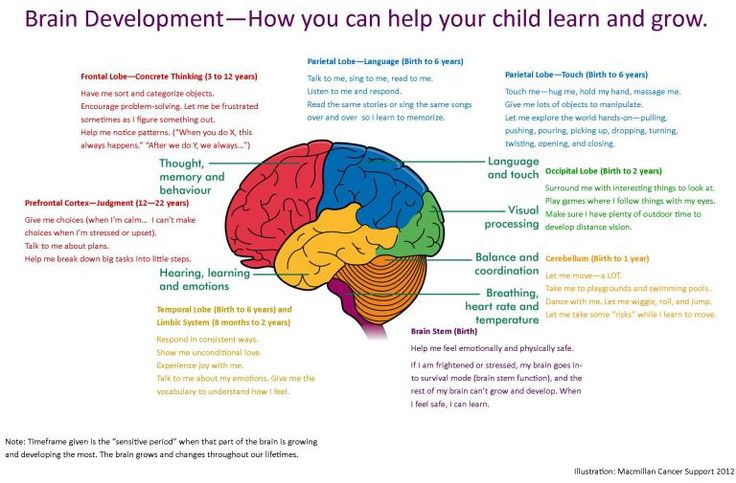
Still from the film The Breakfast Club
© kinopoisk.ru
3. Reflection
Mirror another person's emotions: listen to him and retell what he told you, with an emphasis on his feelings. For example: “I understand that you have a tense situation at work right now, I see how anxious you are.”
Result: you will be able to establish contact, express sympathy. This approach will eliminate the need to select some special words (which often causes difficulty).
4. Connect with “others”
It's no secret that many people like to gather around themselves a team of like-minded people with a similar worldview, because in such a society we feel most comfortable. But this blurs the view, makes our thinking tunnel-like, and makes us unable to understand and sympathize with those whose views differ from ours. Set yourself the task of communicating with those with whom, for various reasons, you would not maintain relationships in ordinary life.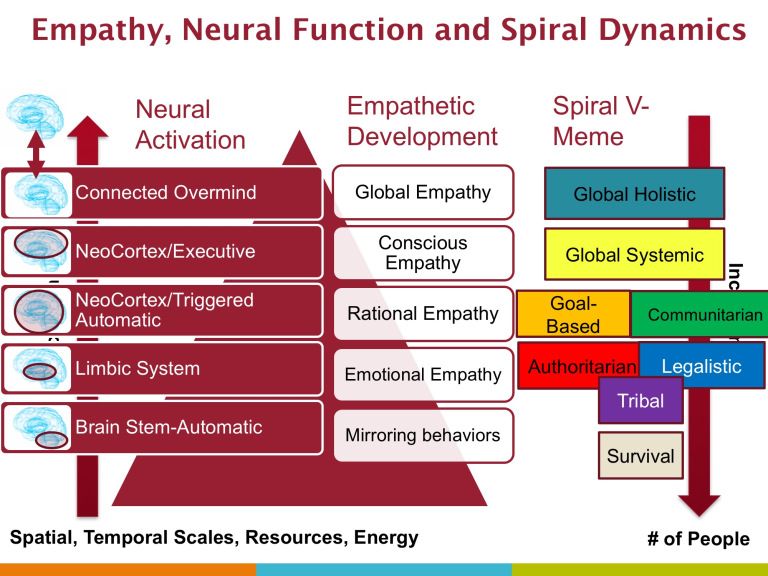
Result: ability to understand "others" (people with a different worldview) and their motives.
5. Read and watch
Reading fiction and watching psychological films is a great empathy trainer. Try to track and analyze how the hero feels, at what moments he evokes empathy and why.
Result: often when in contact with works of art, empathy arises at an automatic level (this element is inherent in the work itself), which helps to train the skill.
A still from the film Romantiki 303
© kinopoisk.ru
6. Play
There are a large number of board games (including for adults) that create an opportunity to put yourself in the place of other people and build relationships with them. One of them is the Imaginarium.
Result: such games train the ability to better understand the interlocutor and predict the train of thought of different people.
7. Cards of emotions
Find on the Internet and copy the list of emotions, consisting of more than 30 points, next to each write the situations from your life in which you experienced it.

